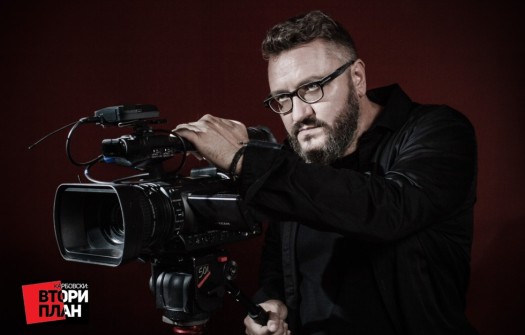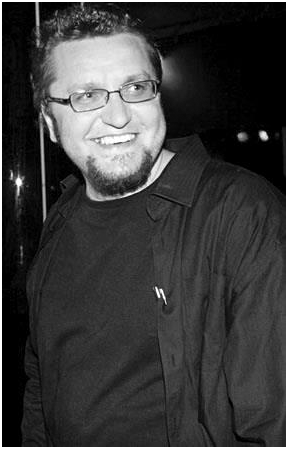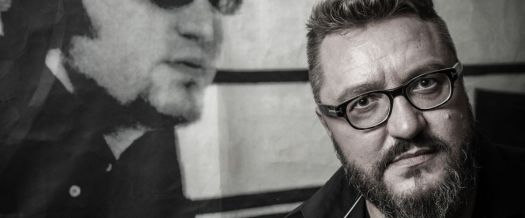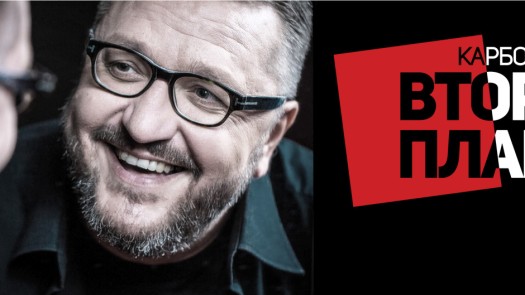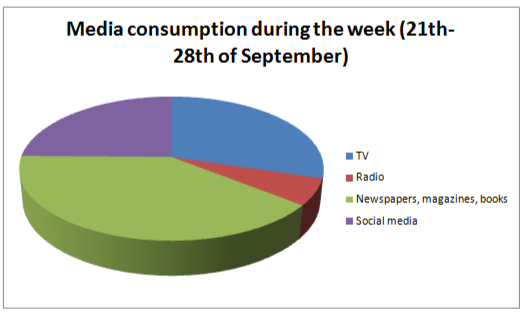I. Me swinging gently between different kinds of journalism.
Making a career plan straight after Semester 1 finished might be a tough work to do, especially when the thoughts in your head are as mixed as eggs, sugar, pepper and milk could be. What I am trying to say is that I have not settled at one particular journalism area yet, but I want to try out a bit from everything. I decided to put my insights on a piece of paper, because I have read somewhere that listing your problems helps your brain to solve them easier.
“What kind of journalism should I do?,” the question popped in my head, while I was trying to list different areas where I could be involved. “Alright, definitely not politics,” I crossed out the first option. The second one- investigative journalism, sounds appealing, but I do not feel like the perfect person for this job. If I could describe myself with three words, that would be positive, sensitive and creative. When I realised these traits of mine, I totally dismissed every serious, criminal, politics-related journalism topics. So what was left on the list was separated words like “fashion”, “art”, “books, movies, plays reviews”. I need to produce pieces of writing that would bring a smile on my face and this is not just a whim.
When I was in Bulgaria, I tried to write fiction. I created my very own characters, who did not have real prototypes. The first story that I wrote was a sweet one. It was about a mountain trip, a group of friends, who try to overcome their problems by travelling without a final destination and escaping their zone of comfort. I could say that it was more like a large philosophical essay about finding yourself and your real purpose in life. My second trial to write a narrative was quite unsuccessful, because it was more tragic, filled with betrayal, murders and impossible love. I did not finish it, because I was scary of the bitter end that I should put. After some time, I started meeting people that have exactly the same traits as I depicted in my stories. It does sound dreadful to get to know the villains that came out of your hand in person. That is why I prefer to write about something undemanding, relaxing the mind and the soul, leaving positive impressions.
My initial goal is to create my very own magazine, that covers a wide range of topics: from fashion, book/movie/theatre reviews to discussions about astrology, mythology, past life regressions and unexplained misteries like the hidden code behind Da Vinci’s Mona Lisa. This is going to be my soul in a printed version, overflown with creativity, artisticism and an intuitive sense to see matters from different angles.
II. The place I would like to work for.
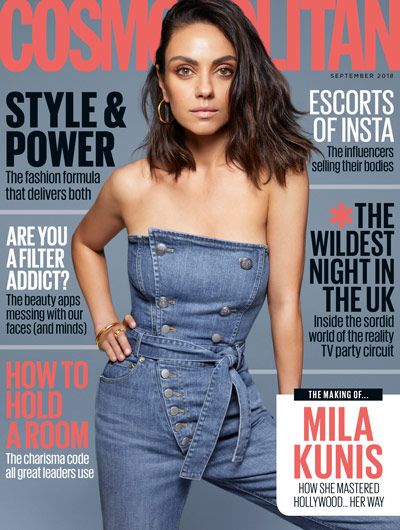
I started doing some research for the perfect workplace for me. It turned out that I would fit quite well in the Cosmopolitan magazine, whether I would write for the print or online version. You can clearly see that the articles there are produced by professionals. The headlines are breath-taking, and so are the stories’ endings and this is how it should be- you have to keep the reader intrigued so that he would keep swallowing the words like hot bread (Bulgarian proverb). I really like the features there- they are easy-going, both humorous and thought-provoking. Cosmopolitan implicitly faces problems like social media addiction, unrealistic body expectations and our constant comparison with others, but presents them as if you have to make one small step to solve these obstacles, and I approve of this policy. After all, this is what I would like to do- to teach people, inspire them, influence them to become better with time. I want to be the nation’s example of an individual feeling satisfied with life, without looking at other’s achievements and making one’s own way off the beaten track. I would like to be a part of this magazine production, because I will have to use creativity and colours on a daily basis in order to depict a piece of writing that everyone will appreciate, because it would lead the reader to an unknown journey leading to happiness, catharsis, soul-cleansing and positive affirmations.
III. The journalist whose work I admire.
I will be honest- I have not spent that much time to possess a good quantity of knowledge about British journalists to be confident to analyse their work. However, the first journalists I had the chance to get to know in a great detail are my tutors at University of Westminster and I truly appreciate their way of thinking. After all, they were the people who unlocked my potential to express myself with more than one sentence.
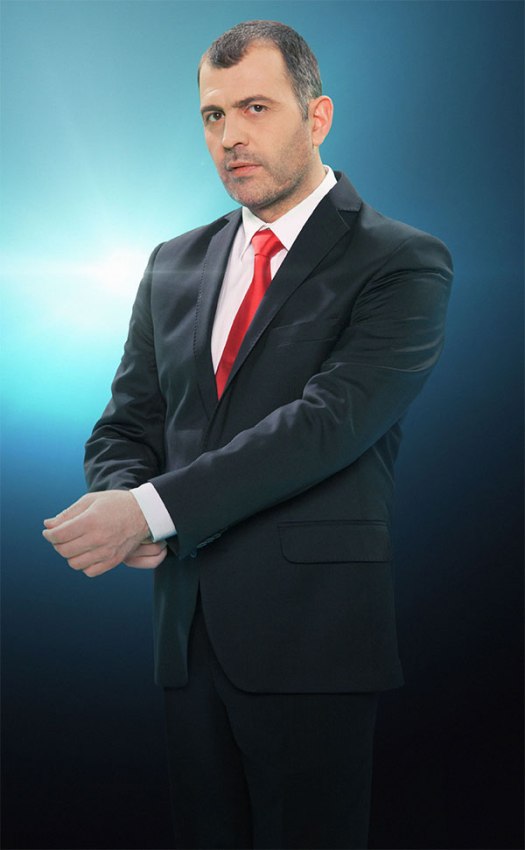
The journalist I have as a role figure is called Stoycho Kerev, again Bulgarian journalist with lots of achievements. He does not have a printed magazine, but he used to have a TV show. Now he publishes new series of this broadcast in his Youtube channel alongside with a website, where he uploads articles. Last year he made a documentary called “The New Knowledge, The Conspiracy of 2017”. He is interested in global conspiracies, like the existence of Illuminati, the construnction of the pyramids of Egypt, hidden clues in popular artists’ paintings. He also immerses himself in topics like Bulgarian and world history, the consequences of past life regressions, understanding of the Kathara system, occultism, etc. His guests are esoteric experts, professors, cosmic lawyers… You cannot get bored by this diversity of aware people.
I like Kerev’s interviews with the esoteric and writer Hristo Nanev the most. Their last meeting was on 15th of December and I translated it so you could have the chance to understand it.
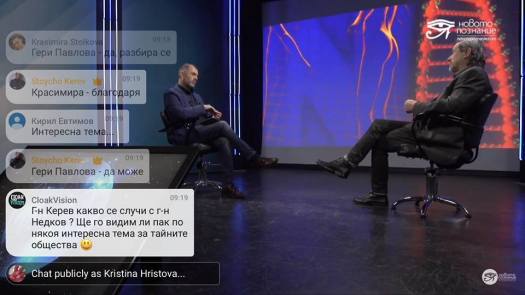
They tend to talk about how past life regressions explain the decisions we make in the present. Hristo Nanev, as an expert in hypnosis, will always add a colour to the grey theories with examples from his own experience with clients, who had experienced obstacles, talking or other defects before going through their previous existence on Earth (or even on another planet). Both of them know what are they talking about- it does not look like the guest is trying to educate the host; it is more like an intellectual debate forming between them, leaving the audience with new insights and thirst for more of this brain game.
The skills Kerev possesses are:
- solid quantity of background knowledge- he is always prepared for different topics by doing a lot of research and consulting with experts in the area
- thinking outside the box- he always questions the unquestionable and adds creative elements, making his show appealing to a wider audience
- he knows how and when to ask a particular question that is provocative and gets the essential information from his guest
- he explains in a way that even a child could understand
- he has a sense for finding the right person for his broadcast
- he always makes his show engaging, no matter the topic



